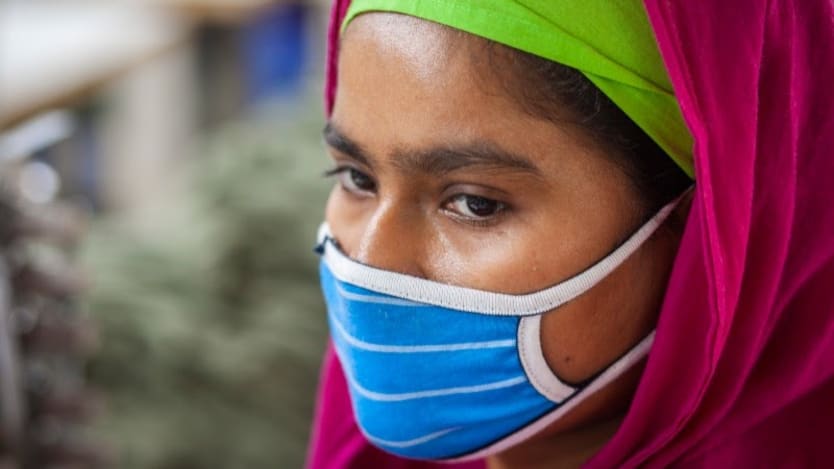
The coronavirus pandemic is causing tremendous upheaval to health systems around the world, disrupting access to family planning information and services, as well as to sexual and reproductive health more broadly. It is crucial that sexual and reproductive health and rights remain a priority despite these challenges, and they must be part of the ongoing discussion about how to best achieve universal health coverage.
On July 10, Devex hosted an event sponsored by Bayer titled “The power of choice: Ensuring access to family planning in the COVID-19 era”. Watch the full recording of the conversation.
Access to safe, voluntary family planning is a human right and a centerpiece for sustainable development. Investing in family planning addresses gender equality and women’s empowerment, reduces poverty, protects maternal and child health, drives economic development, and lowers the cost of health care.
Lack of access, conversely, has broad and devastating consequences for individuals, families, and even societies as a whole, disrupting health systems and economies and increasing inequality.
The pandemic is exacerbating already existing disparities, and women are bearing the brunt of its impact. Many are on the front lines supporting patients, putting their own health at risk. Many more are stuck at home, facing increased risk of domestic violence. Add to that the hurdles women face in accessing health care and contraceptives, and the compound impact is devastating.
Before COVID-19, there were already over 230 million women in low- and middle-income countries who wanted to use modern contraceptives but were not able to access them. In a recently published study on the impacts of COVID-19, the United Nations Population Fund, the United Nations’ sexual and reproductive health agency, estimated that 47 million women in 114 LMICs are at risk of losing access to modern contraceptives in the first six months of lockdown.
This could, in turn, lead to an additional 7 million unintended pregnancies, an increase in unsafe abortions and associated complications, and a rise in sexually transmitted infections such as HIV. These estimates show how urgent it is to act immediately to strengthen supply chains, improve preparedness and prepositioning, and ensure people can continue to access contraceptives.
Strategic partnerships, like the one between UNFPA and Bayer, are critical to ensuring continued access to contraceptives. The pandemic has shown that all sectors can come together to make a real difference, and we hope that this innovative thinking and speedy implementation continues long after the pandemic has passed.
Through this partnership, Bayer aims to keep working toward its commitment of providing access to contraceptives to 100 million women in LMICs by 2030, which it announced last November at the Nairobi Summit on the International Conference on Population and Development.
This partnership has identified concrete ways to reach those left furthest behind in some of the most challenging, crisis-ridden parts of the world by leveraging UNFPA’s strong local presence and deep humanitarian experience, along with Bayer’s technical and logistical expertise. Bayer will support UNFPA by helping to strengthen supply chains and overcome bottlenecks for medical supplies in humanitarian settings.
We live in a world where humanitarian emergencies are a reality, and it is critical that we learn from them. One of the lessons is the power of cooperation and the value of bringing new partners on board to innovate and address unmet needs.
The pandemic has shown that all sectors can come together to make a real difference.
—As we work to overcome COVID-19, we must not lose sight of the deadline for achieving the Sustainable Development Goals by 2030. It is evident that COVID-19 is having an adverse impact on our ability to achieve them, which is why it is more urgent than ever that sexual and reproductive health and rights are an essential part of this agenda.
UHC and access to family planning need to be at the center of these efforts, especially for women in LMICs. The lessons from COVID-19 have shown the need for systems-based approaches, collaboration across borders, and decisive action delivered at speed.
The measures required to contain the current crisis must not hamper our ongoing efforts to improve women’s health and rights. And cross-sectoral collaboration is essential to keep both goals in sight. We must build upon these learnings, together, to ensure women have the power of choice.









